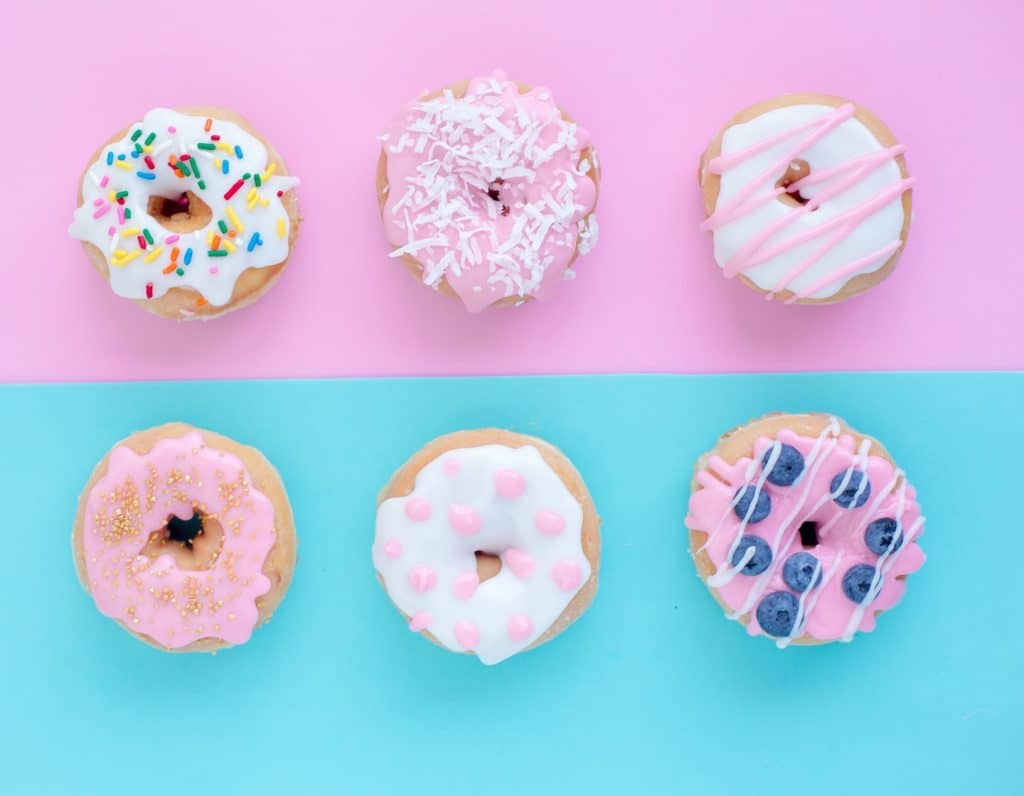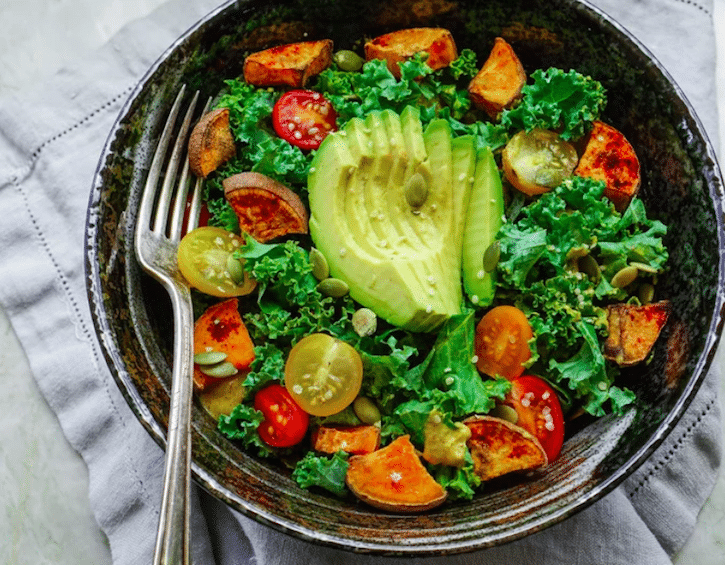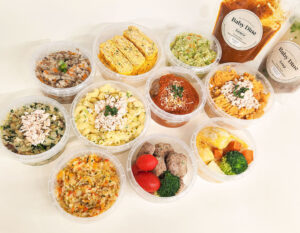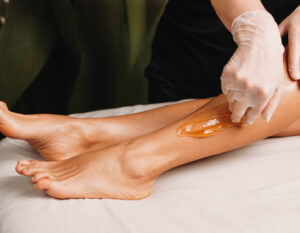
Here’s why you should consider cutting sugar from your diet, and why it’s more doable than you think
Let’s just say that since entering my mid-30s my metabolism seems to have slowed to a crawl. No matter how much I exercise, or how careful I am about what I eat, losing weight is a lot tougher than it used to be (this became painfully clear in the three years between baby #1 and baby #2).
I started the year off feeling quite blah, and had been toying with the idea of a sugar detox to kickstart my immune system and hopefully get my nutrition back on track. As detailed by numerous sources, sugar is the main culprit behind public health epidemics such as heart disease, diabetes and obesity.
According to Gary Taubes, author of The Case Against Sugar:
“Having too many carbohydrates in the diet — and too much sugar in particular — seems to overtax this system, messing with our metabolism and making insulin less efficient at its job. The case against sugar holds that this condition in turn can make us fat, and also diabetic, and prone to heart disease, cancer, gout, and the rest.”
I mean, we’ve always known that sugar wasn’t great, but it’s become increasingly clear that it’s at the root of lots of health problems. I personally have always had a sweet tooth – from scoffing sugary cereals as a kid, to a nightly dessert habit, to a 2-teh-halias-a-day habit in Singapore. I don’t think it’s a coincidence that I was feeling particularly blah at the beginning of this year on the heels of the sugar season.

I started toying with the idea of a 30-day sugar detox and, knowing it would be really tough to go it alone, convinced my husband to join in with me. We decided to start the day after his birthday, in March, and go for a full calendar month.
The more you read up on sugar, the more evident it becomes that there is added sugar in basically everything you’d buy at the grocery store, from pasta sauce, to yogurt, to mustard, to hummus. My husband and I therefore decided to avoid all preservatives to the best of our abilities.
We for the most part followed the Whole30 program, which emphasises lots of fresh veggies, meat, seafood and healthy fats, along with some fruit (according to nutritionist Marion Nestle, “Nobody eats too much of [the sugar that occurs naturally in fruit, vegetables and dairy], not with the fibre and vitamins and minerals that they have”). Although Whole 30 also rules out grains and legumes, I occasionally ate organic rolled oats and brown rice, and we also made our own hummus and falafel with garbanzo beans (freshly soaked, not from a can). We didn’t eat any bread or pasta, though.
We ate A LOT of eggs for breakfast (this bowl with banana, coconut, almonds and apple became my go-to), and had tons of veggies at dinnertime. There are many great Whole 30 recipes out there (we got lots of meals out of this list); the trick is just finding ingredients that are compliant (stuff like coconut aminos, apple cider vinegar, and avocado oil, for instance). Per usual, having a helper who’s a great cook made the task more manageable than it otherwise would have been.
My husband and I both entered into the month with a great deal of trepidation, but honestly I feel like the toughest aspects were mental, rather than physical.
Read more: Your Guide To Meditation And Mindfulness In Hong Kong

Here are eight things I learned along the way:
- Sugar was a psychological crutch for me. Whenever I hit a lull in the afternoon, or felt particularly down on a Monday morning, I found myself wanting to cheer myself up with an iced mocha, or a cupcake. While food is definitely something to be savoured and enjoyed, I don’t think it should function as an automatic reward. Instead, I went for a walk outside.
- Fruits and veggies taste a lot sweeter when you eliminate artificial sweeteners. Things like apples, blueberries and bananas all tasted extra wonderful, particularly after a week of no added sugar.
- You feel fuller at night. I feared that eating tons of green leafy vegetables and meat but eliminating carbs would make me feel hungry at night and in the morning, but I generally felt pretty satisfied and didn’t want to snack as much as usual.
- You miss carbs a lot less than you thought you would. I thought I’d be craving sandwiches for lunch and crying on Friday nights (when we normally get pizza delivery), but shockingly this has been the part that I’ve continued with most easily (though I have reverted to my Saturday morning pancakes).
- Your definition of dessert will change drastically. Nuts, a small glass of almond milk (better be freshly made, because most of the stuff at the supermarket contains extra crap), raw cacao nibs… I didn’t eat these things every night, but they made for a nice capper in a pinch. Cutting down on cookies, cupcakes and ice cream was probably one of the biggest contributors to weight loss.
- You may lose some weight but that’s not really what it’s about. My husband and I both lost some weight (I never weigh myself, but noticed my clothes fitting better), without really changing our exercise routines. My hope is that I improved my metabolism, which was more of a longterm goal rather than something limited to just the month.

- There’s a lot of added crap in pretty much everything you buy at the grocery store. More now than ever, I try to live by two pieces of advice from food writer Michael Pollan:“Eat food. Not too much. Mostly plants.” And: “Don’t eat anything your great-great-grandmother wouldn’t recognise as food.” That second one is so crucial, and as you walk around a grocery store, you realise how much junk – whether it’s preservatives, artificial colours or added sugar – there is in most food (virtually anything you’d want to eat “on the go” – other than maybe a piece of fruit – is going to fall into that category). Fresh veggies and high-quality meat and fish are pretty much the way to go.
- The first week is tough but by the end of the month it’s not hard to just keep going. It’s really hard to break habits, whether it’s a morning bowl of cereal, a big iced coffee with milk and sugar, carby snacks (like crackers, or energy bars) in the afternoon, even veggies with ranch salad dressing. But this detox helped us create new, healthier habits, and for the most part we’ve been able to keep them up. I did notice that I got headaches in the mid-afternoon over the first few days – I assume this was my body saying, “Hey, where’s my sugar?” – but they quickly abated and, once the month was up, I then noticed myself getting headaches when I did consume sugar.
Read more: #100DayFitness Challenge: Strong Versus Skinny And Why I Choose Both
So would I do it again?
Yes, absolutely. I’d say I’ve been pretty good in continuing to adhere to the main principles of the sugar detox, though I also realise there’s nothing wrong with a piece of cake or an ice cream here or there. The key is just limiting it to a couple times a week, rather than making it an almost-nightly occurrence.
There are many variations on the sugar detox out there, starting with something as brief as a three-day version. If you want to learn more, or get more personalised advice, I’d suggest seeking counsel from a nutritionist (we think our contributor Cristina Tahoces is pretty special!).
This article was originally published on Sassy Mama Singapore on 18 June, 2018.
 View All
View All









 View All
View All




 View All
View All


 View All
View All













